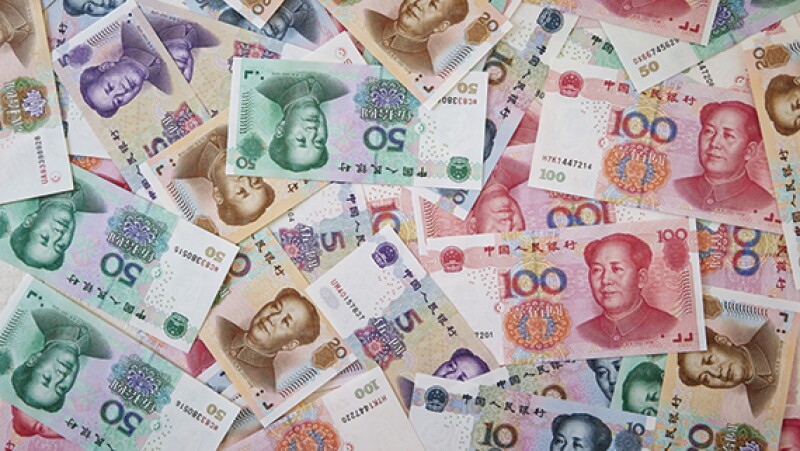
|
China announces a raft of tax incentives and rate reductions |
With a view to enhancing China's business environment, and fostering innovation, a raft of tax incentives and rate reductions were announced on March 5 2017 by Premier Li Keqiang in the 2017 Report on the Work of the Government delivered to the National People's Congress (NPC). He further elaborated on these at a April 19 meeting of the State Council and additional details have since been issued by relevant ministries and government agencies. The changes aim to reduce taxes by RMB 380 billion ($55 billion) and reduce other business fees and charges by RMB 200 billion, and include the following:
Simplification of the VAT rate structure: The VAT brackets applicable to general VAT taxpayers will be reduced from four to three from July 1 2017 onwards. The new VAT rates will be 17%, 11% and 6% [a separate 3% rate continues to apply to small enterprises not registered as general VAT payers]. Agricultural products, printed media and electronic media, and natural gas, which used to be subject to the 13% rate, will be subject to the 11% rate, and the 13% rate will be abolished. This being said, it is anticipated that the deemed VAT input credit for purchases of agricultural produce from Chinese farmers, which do not pay VAT on their sales, will remain at 13% during the VAT reform pilot period as long as the purchases are used for sales that are subject to VAT at 17%. This is so it does not affect the beneficial tax position of the farmers;
Expand coverage of small business corporate income tax (CIT) incentives: From January 1 2017 to December 31 2019, eligible small enterprises whose table income falls under RMB 500,000 may pay CIT on 50% of such income at a rate of 20% (i.e. effective rate is 10%). The threshold was previously RMB 300,000;
Increase in R&D expense super deduction for SMEs: From January 1 2017 to December 31 2019, "science and technology-related SMEs" may obtain an improved CIT bonus deduction for their R&D expenses. The bonus deduction will now be 75%. Previously, the bonus deduction for such enterprises was 50%, at which level it remains for larger enterprises. The qualifying conditions for such "science and technology-related SMEs" require that the SME staff do not exceed 500 persons and that sales and assets do not exceed RMB 200 million ($29 million), and a points system applies to determine if the innovation thresholds have been reached;
Individual income tax (IIT) deductions for private health insurance: Annual deductions are permitted up to RMB 2,400 per person from July 1 2017 on a nationwide basis. This builds on an earlier pilot programme operating in Beijing, Shanghai, Tianjin, and Chongqing since January 1 2016; and
Enhancement of venture capital (VC) tax incentives: Under existing rules where VC enterprises, taking either corporate or partnership form, invest in non-listed small and medium high and new technology enterprises (HNTE) by way of equity investment, the 70% of the investment amount can be offset against the taxable income of the VC enterprise for CIT purposes. In order to enhance the usefulness of the incentive, the range of investors who may benefit from the incentive has been expanded, as has the range of qualifying investee enterprises. The incentive has now also been expanded to individual investors for IIT purposes ('business angels') including where these are natural person partners in partnership-form VC enterprises, from July 1 2017, thus enhancing the value of the relief. The limitation of the existing incentive to HNTEs has been problematic because enterprises must go through the HNTE recognition process overseen by the Ministry of Science and Technology and other relevant authorities, and must also meet certain strict requirements. The qualifying investee enterprises are now expanded to include unlisted technology start-ups which satisfy several conditions (e.g. less than 200 employees, at least 30% of which with a university degree, in business for less than five years, assets/revenue less than RMB 30 million at time of investment, at least 20% of total expenses outlaid on R&D). This should increase the usefulness of the incentive significantly. The new incentive treatment will initially be piloted in eight designated locations, including Beijing-Tianjin-Hebei, Shanghai, Guangdong, Anhui, Sichuan, Wuhan, Xian, Shenyang, and the Suzhou Industrial Park.
In addition, various incentives originally due to expire in late 2016 are now extended to the end of 2019, including:
Urban and township land use tax (UTLUT) reductions for commodity warehousing investments;
VAT exemption for interest income of small lenders to farmers; and
Tax incentives to get the long-term unemployed and ex-servicemen into work, etc.
It might be noted that, beyond these, a range of tax changes are anticipated in the course of 2017, including new CIT anti-hybrid and CFC rules, updated treaty abuse guidance, revamped IIT and TCA laws, as well as the potential for updated guidance on foreign tax credits and permanent establishments.
Khoonming Ho (khoonming.ho@kpmg.com) and Lewis Lu (lewis.lu@kpmg.com)
KPMG China
Tel: +86 (10) 8508 7082 and +86 (21) 2212 3421
Website: www.kpmg.com/cn









